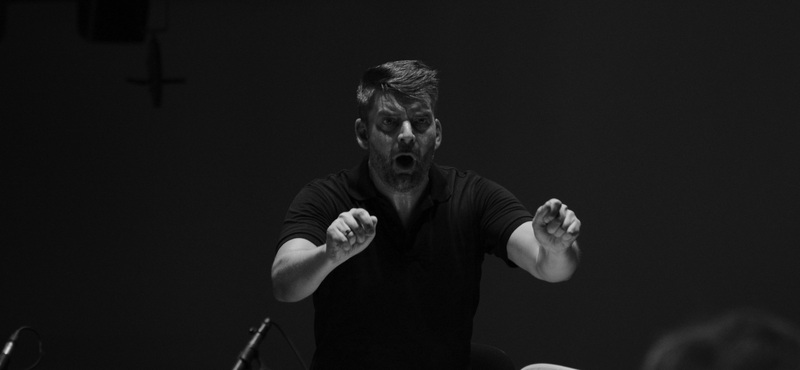Stasevska leads the NSO

After a couple of blockbuster programs (Stravinsky’s Le sacre, and Mahler’s Ninth Symphony), The National Symphony Orchestra dials it back a bit this week, with a lighter program only given twice. But there was much to recommend it, at least on paper; the local premiere of an NSO co-commission, Hynm for Everyone by Jessie Montgomery, and NSO debuts of Finnish conductor Dalia Stasevska and a way-overdue appearance by pianist Conrad Tao (a Warner recording artist and has already performed with the Chicago Symphony, Boston Symphony, Cleveland Orchestra, and the New York Philharmonic).
Stasevska is something of a cipher. Trained at the highest level (Sibelius Academy under Jorma Panula), music director of the Lahti Symphony and principal guest conductor of the BBC Symphony, she has appeared with many of the top US orchestras, and does a lot of opera as well. And who better to lead the evergreen and incandescent Sibelius Second Symphony? But I didn’t feel much of a connection between her and the musicians. There was a lot of exhorting, vigorous motions with her whole torso, not just the baton. But much of it felt driven (particularly the first and third movements) without the electricity that NSO music director Noseda often achieves. The music wasn’t breathing. At the same time, Stasevska excessively drew out the short silences that are sprinkled throughout the score, even adding some. The result was a vexing, stop-‘n-start interpretation that was surprising for someone for whom this composer would be second nature. The NSO brass made lovely, golden sounds, though.
Montgomery (b. 1981) is currently composer-in-residence at the Chicago Symphony, and Hymn for Everyone is an elgaic meditation on our troubled times. The basic hymn tune, heard mostly in the woodwinds, is set off by a descending six-note ostinato first in the low strings and then elsewhere. In the middle is a lush brass chorale with deeply expressive harmonies. She has a “voice,” though her orchestral palate is not especially original (though a conservatory-trained violinist and composer, her earliest music influences were in free-form jazz). I’d like to hear more from her, in other genres. The audience wasn’t enthralled, though, offering only dutiful applause.
Conrad Tao is another eclectic artist, who has almost as big a career as a composer. But he is unquestionably a virtuoso, with fingers of steel, velvet, oil, and silk. In the Shostakovich Concerto No. 1, he found nooks and crannies of expression that this sardonic and almost minimalist score barely hints at. He “inhabited” the music, as a fellow-composer might, and his sometimes over-the-top body language was all of a piece with a remarkably cinematic interpretation. NSO trumpeter William Gerlach contributed excellent solo lines, and was unfazed by the difficult entrances on low notes. Stasevska’s accompaniment was quite good, with sharp ensemble and lovely hushed playing in the Lento.
The program will be repeated Saturday evening at 8 in the Kennedy Center Concert Hall.





